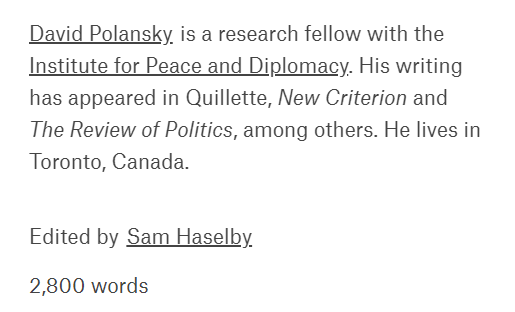Welcome to DU!
The truly grassroots left-of-center political community where regular people, not algorithms, drive the discussions and set the standards.
Join the community:
Create a free account
Support DU (and get rid of ads!):
Become a Star Member
Latest Breaking News
General Discussion
The DU Lounge
All Forums
Issue Forums
Culture Forums
Alliance Forums
Region Forums
Support Forums
Help & Search
The violent origins of political societies


https://aeon.co/essays/machiavelli-on-the-problem-of-our-impure-beginnings

Florentine Street Scene with Twelve Figures (Sheltering the Traveller) (1540-60), anonymous artist. Courtesy the Rijksmuseum, Amsterdam

Friedrich Nietzsche once wrote: ‘Mankind likes to put questions of origins and beginnings out of its mind.’ With apologies to Nietzsche, the ‘questions of origins and beginnings’ are in fact more controversial and hotly debated. The ongoing Israel-Gaza war has reopened old debates over the circumstances of Israel’s founding and the origins of the Palestinian refugee crisis. Meanwhile, in a speech he gave on the eve of Russia’s invasion of Ukraine in February 2022, Vladimir Putin insisted that ‘since time immemorial’ Russia had always included Ukraine, a situation that was disrupted by the establishment of the Soviet Union. And in the US, The New York Times’ 1619 Project generated no small amount of controversy by insisting that the United States’ real origins lay not with its formal constitution but with the introduction of slavery into North America.
In other words, many conspicuous political disputes today have a way of returning us to the beginnings of things, of producing and being waged in part through strong claims about origins. Yet doing so rarely helps resolve them. Because these debates have become ubiquitous, we may not realise how unusual our preoccupation with political origins really is. Beginnings are, after all, far removed from the issues at hand as to be a source of leverage in ongoing controversies or a source of controversy themselves. Why should the distant past matter more than the recent past or the present? To better understand why we remain bedevilled by the problem of origins, and perhaps to think more clearly about them in the first place, it may help to turn to a familiar but unexpected source: Machiavelli.
Niccolò Machiavelli is better known for his hard-headed political advice – it was he who wrote ‘it is better to be feared than loved’ – but he was also preoccupied with the role of violence in establishing (and re-establishing) political societies. Few thinkers have dealt so thoroughly and so troublingly with the theme of political origins as Machiavelli, leading the French philosopher Louis Althusser to call Machiavelli the ‘theorist of beginnings’. For Machiavelli, origins are chiefly of interest for two reasons: first, they reveal essential truths about the impermanence of political life that are otherwise obscured by ordinary politics; and, second, their violent conditions are in principle replicable always and everywhere.
Machiavelli’s perspective is moreover useful to us – because of the way he stands outside of our liberal tradition. Every society in history has had its origin stories, but the question of beginnings poses particular challenges for those of us living in the kinds of modern states that first began to take shape in the 17th century. For their legitimacy rests upon their deliberative and representative character. Nearly all existing states – even non-democratic ones – have some claim to represent a given people. Representative government is one of the ways that we assure ourselves that political power isn’t mere domination, and its rules and processes are intended to preserve the rights of the people who establish them. Consequently, we locate the origins of political society with that moment of establishment. The great liberal philosopher John Locke, for example, insists in the Second Treatise of Government (1689) that ‘the beginning of politic society depends upon the consent of the individuals, to join into, and make one society; who, when they are thus incorporated, might set up what form of government they thought fit.’
snip
InfoView thread info, including edit history
TrashPut this thread in your Trash Can (My DU » Trash Can)
BookmarkAdd this thread to your Bookmarks (My DU » Bookmarks)
0 replies, 341 views
ShareGet links to this post and/or share on social media
AlertAlert this post for a rule violation
PowersThere are no powers you can use on this post
EditCannot edit other people's posts
ReplyReply to this post
EditCannot edit other people's posts
Rec (2)
ReplyReply to this post